Crossing The River
In this podcast series, you will learn from multiple Indigenous leaders, who live on the front lines of the global climate crisis. Here they share their life experiences, knowledge, and urgent advice. They are the ones who are leading the path to a possible future. It's time to listen to them, it's time to cross the river. Crossing the River is a podcast from More Than Human Life (MOTH), based at the Center for Human Rights and Global Justice at NYU School of Law and 070 Podcasts.
Mari Luz Canaquiri: The Underwater Beings [ENG]
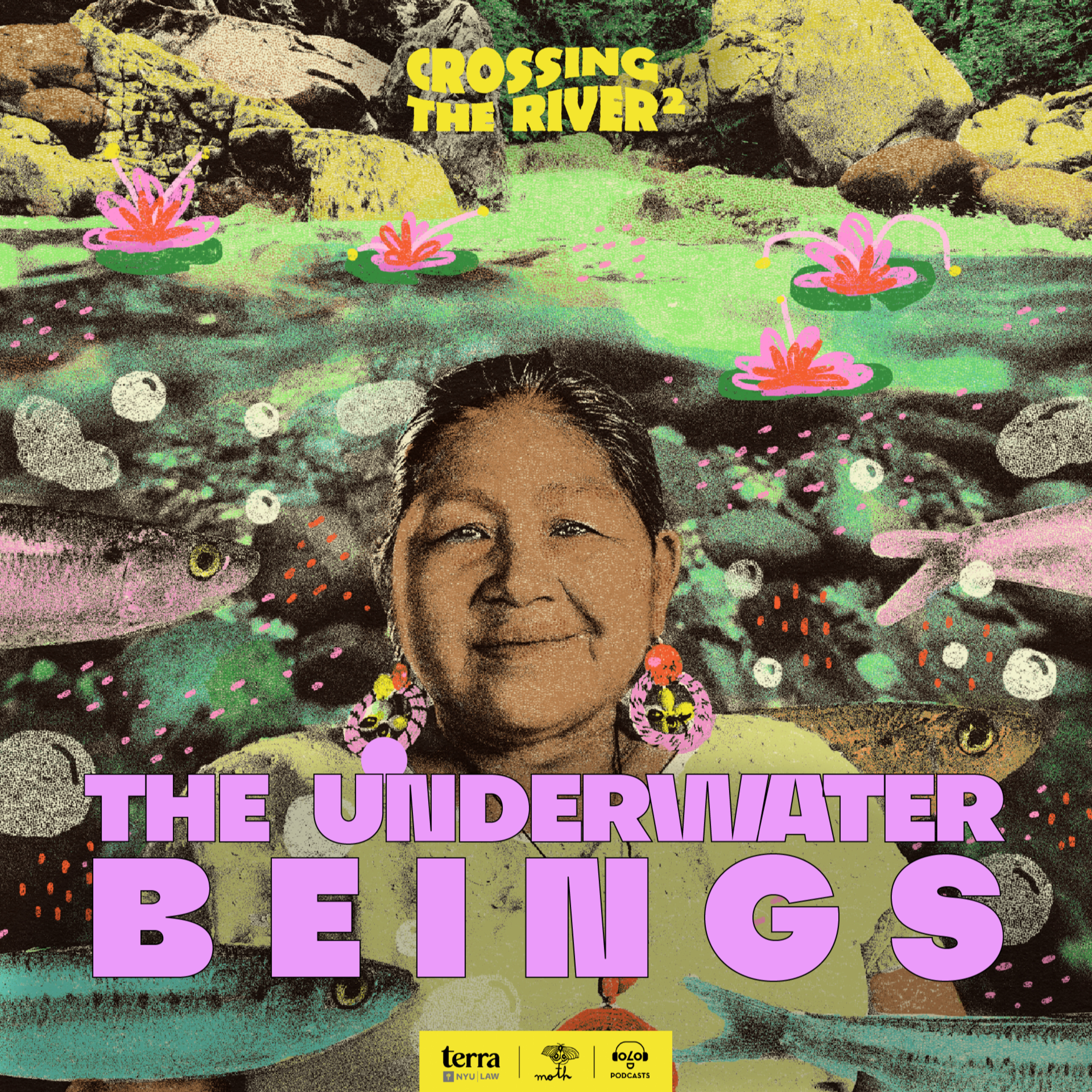
Mari Luz Canaquiri (Kukama Indigenous People, Peru) grew up knowing that the Marañón River is sacred, because they carry life itself.
When oil spills poisoned its waters and her people, her voice was dismissed because she was a woman. Refusing to be silenced, she joined other Kukama women to found the Huaynakana Kamatahuara Kana Federation, leading with a strength that is inclusive, resilient, and cannot be corrupted.
Together, they won a landmark victory: the Marañón became the first river in Peru recognized as a subject of rights. In 2025, Mari Luz was honored with the...
Mariluz Canaquiri: The underwater beings
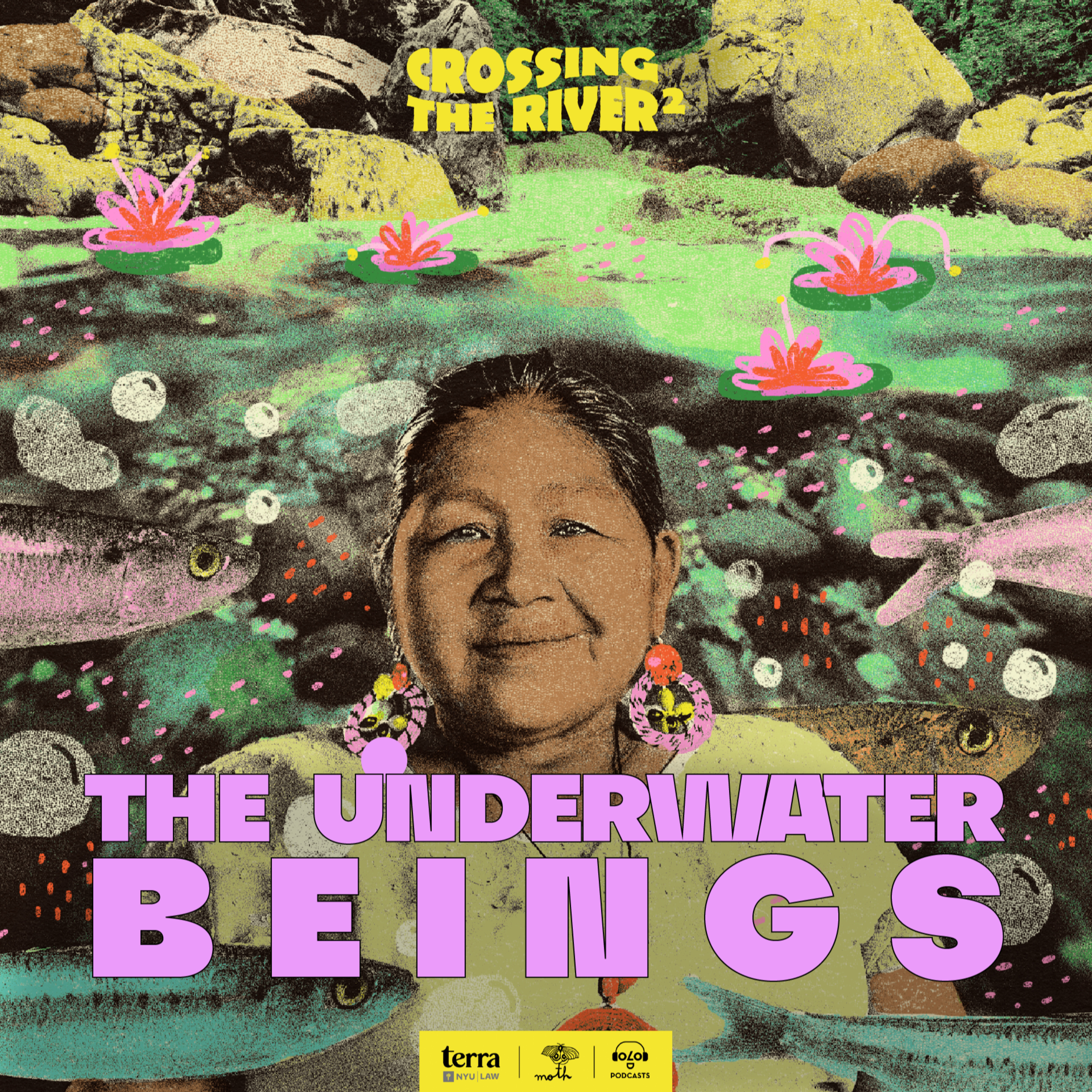
Mari Luz Canaquiri is a Kukama leader and guardian of the Marañón River in the Peruvian Amazon. As the head of the Association of Huaynakana Kamatahuara Kana Women, she played a central role in the campaign to grant the Marañon river legal personhood—a groundbreaking move in Peru aimed at protecting them from pollution and oil spills. In recognition of her tireless efforts to defend the river, in 2025 Mariluz was awarded the Goldman Environmental Prize, often called the Nobel Prize for the Environment.
Mari Luz Canaquiri: The Underwater Beings [ENG]
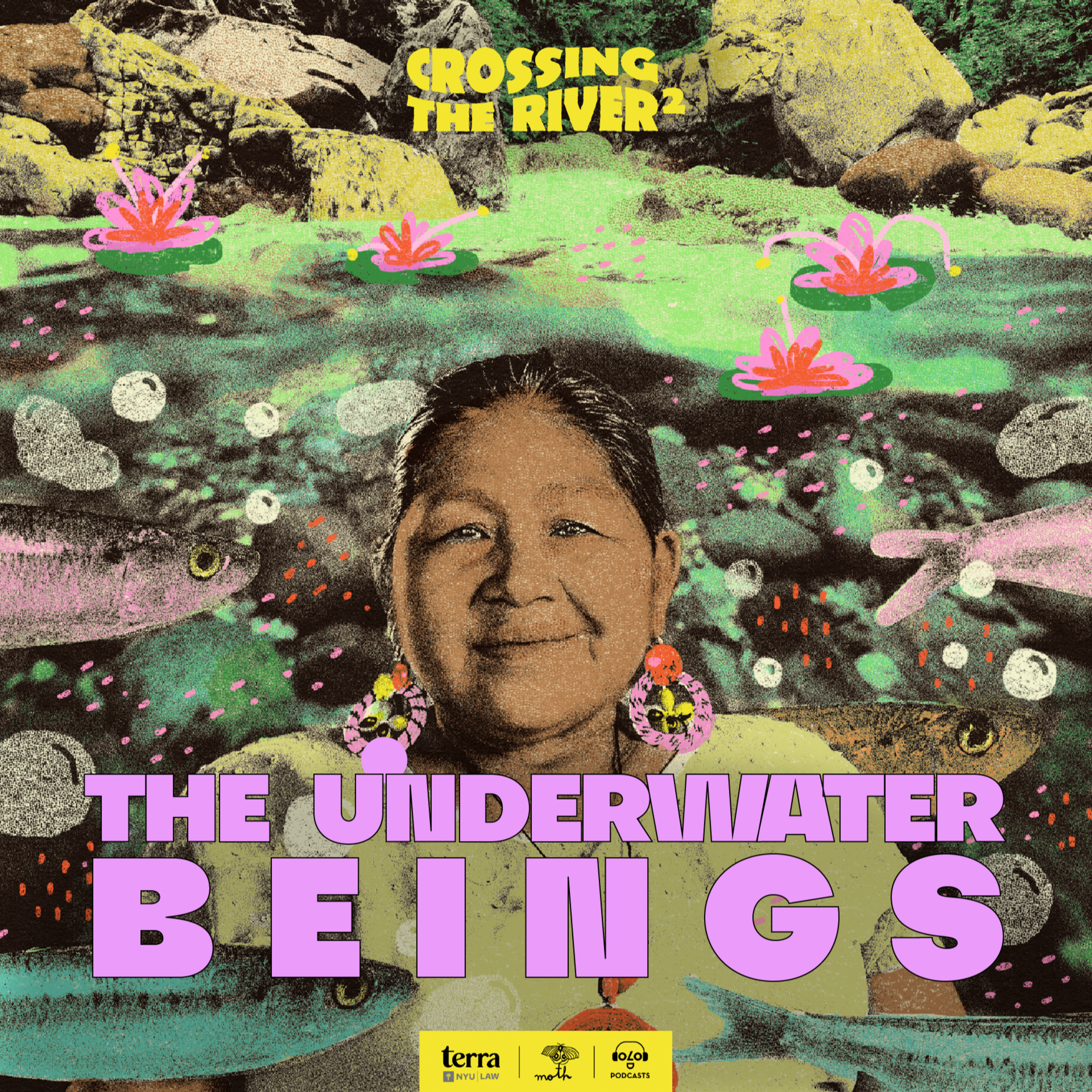
Mari Luz Canaquiri (Kukama Indigenous People, Peru) grew up knowing that the Marañón River is sacred, because they carry life itself. When oil spills poisoned its waters and her people, her voice was dismissed because she was a woman. Refusing to be silenced, she joined other Kukama women to found the Huaynakana Kamatahuara Kana Federation, leading with a strength that is inclusive, resilient, and cannot be corrupted. Together, they won a landmark victory: the Marañón became the first river in Peru recognized as a subject of rights. In 2025, Mari Luz was honored with the Goldman Prize—the “Environm...
Bárbara Muelas: The Guardian of Language [ENG]
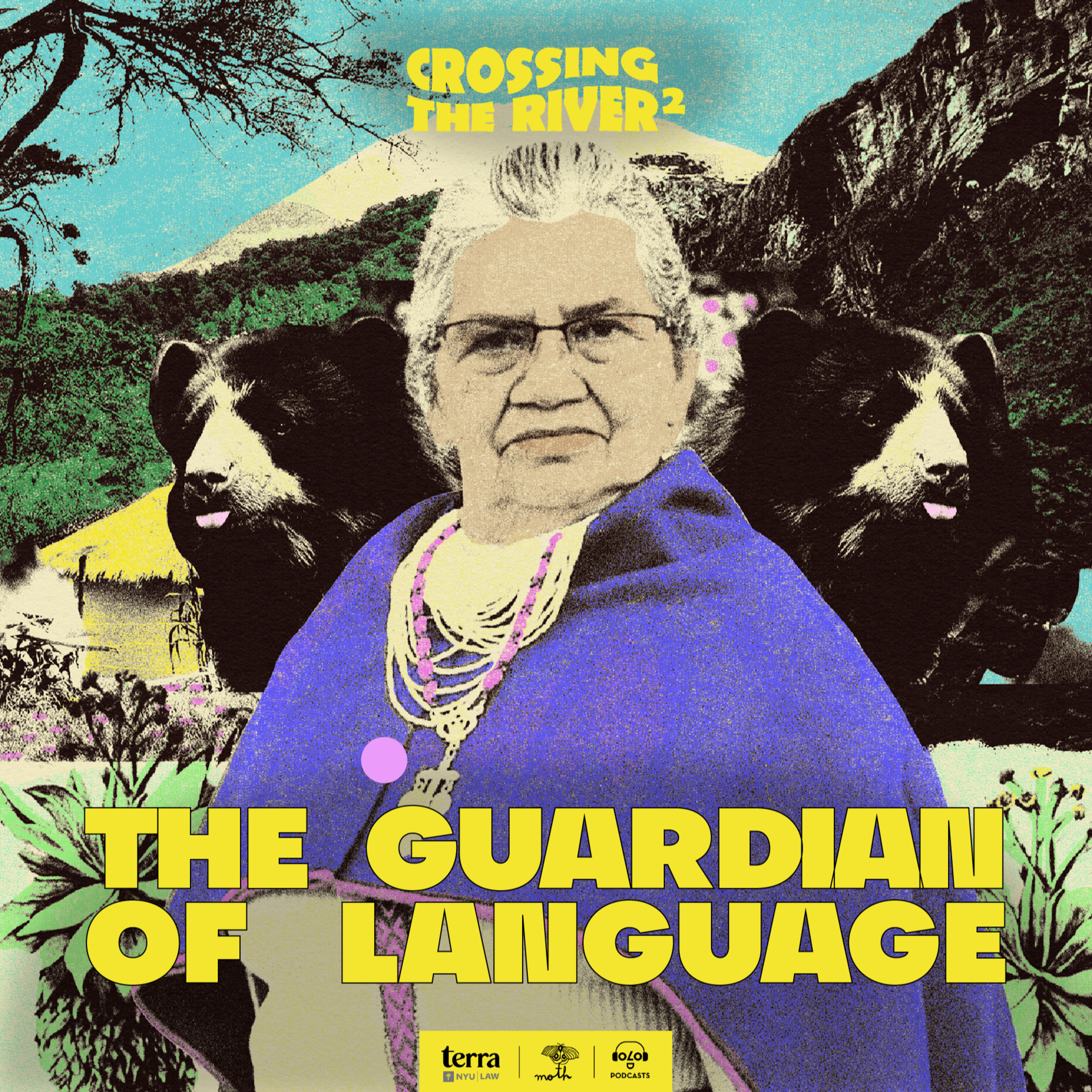
Bárbara Muelas (Misak Indigenous People, Colombia), the first Indigenous woman in the Colombian Academy of Language, has spent her 80 years reviving Namtrik, her mother tongue—one of 65 Indigenous languages that still survive in Colombia despite centuries of colonization. Once spoken only aloud, it is now etched in writing so it will not vanish.
Born to terrajeros during a time in which colonizers forced the Misak nation to work in their own land, she saw her people reclaim their territory in the 1980s and knew that freedom also meant reclaiming their language. Mamá Bárbara translated the ethni...
Jacqueline Flores: The Plant Doctor [ENG]
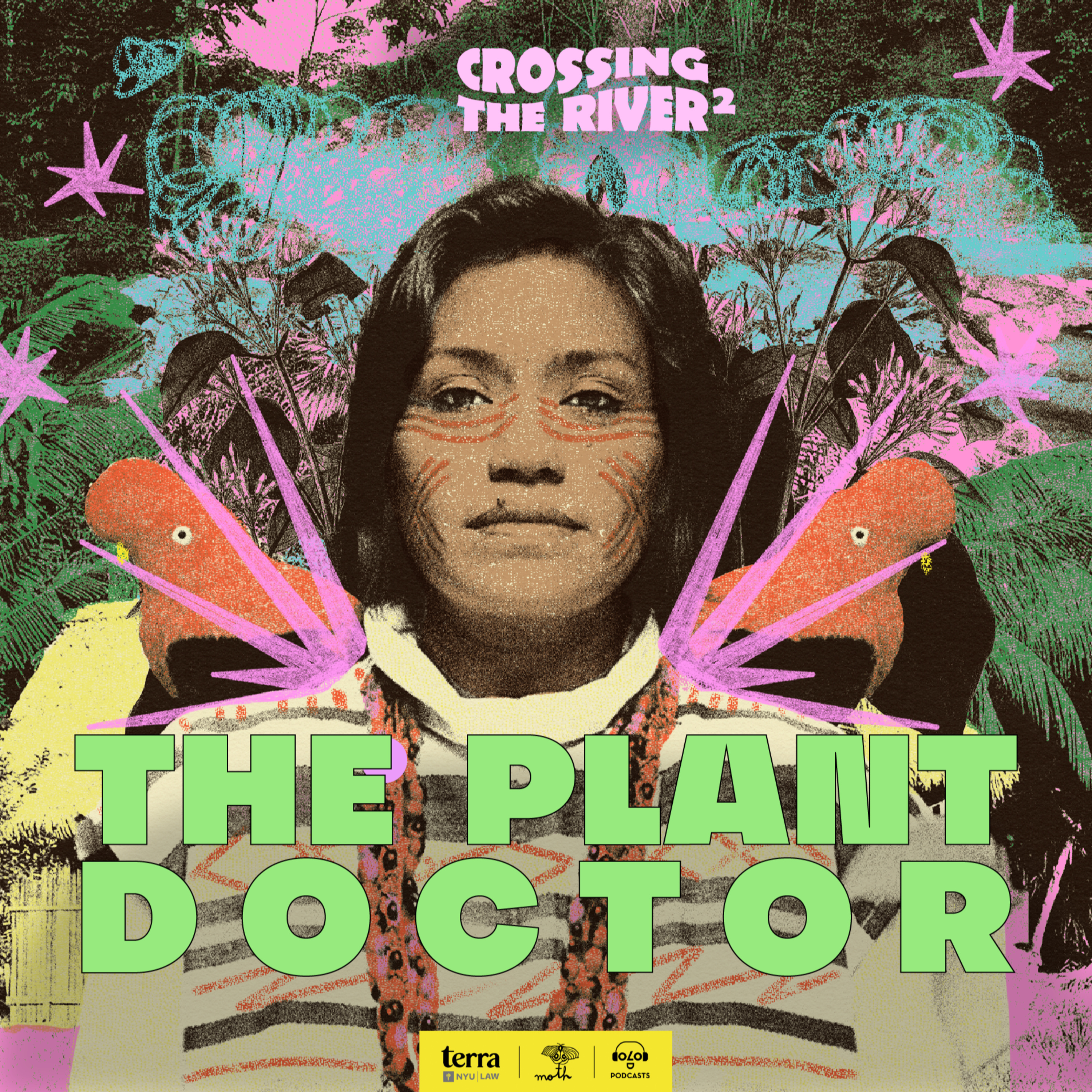
Jacqueline Flores (Asháninka Indigenous People, Peru) thinks that being a plant doctor is not a title—it is an ancient science of direct encounter. One must take the plants, ingest them, allow them to move through the body, and speak. This is a knowledge revealed slowly, through dreams and disciplined diets, where the plants themselves become teachers.
As a traditional healer of the Asháninka people—one of the Amazon’s most profound guardians of medicinal plant wisdom—Jacqueline embodies a way of healing rooted in time, reciprocity, and deep attention. She speaks critically of urban worlds tha...
Noemí Gualinga: The Languages of the Forest [ENG]
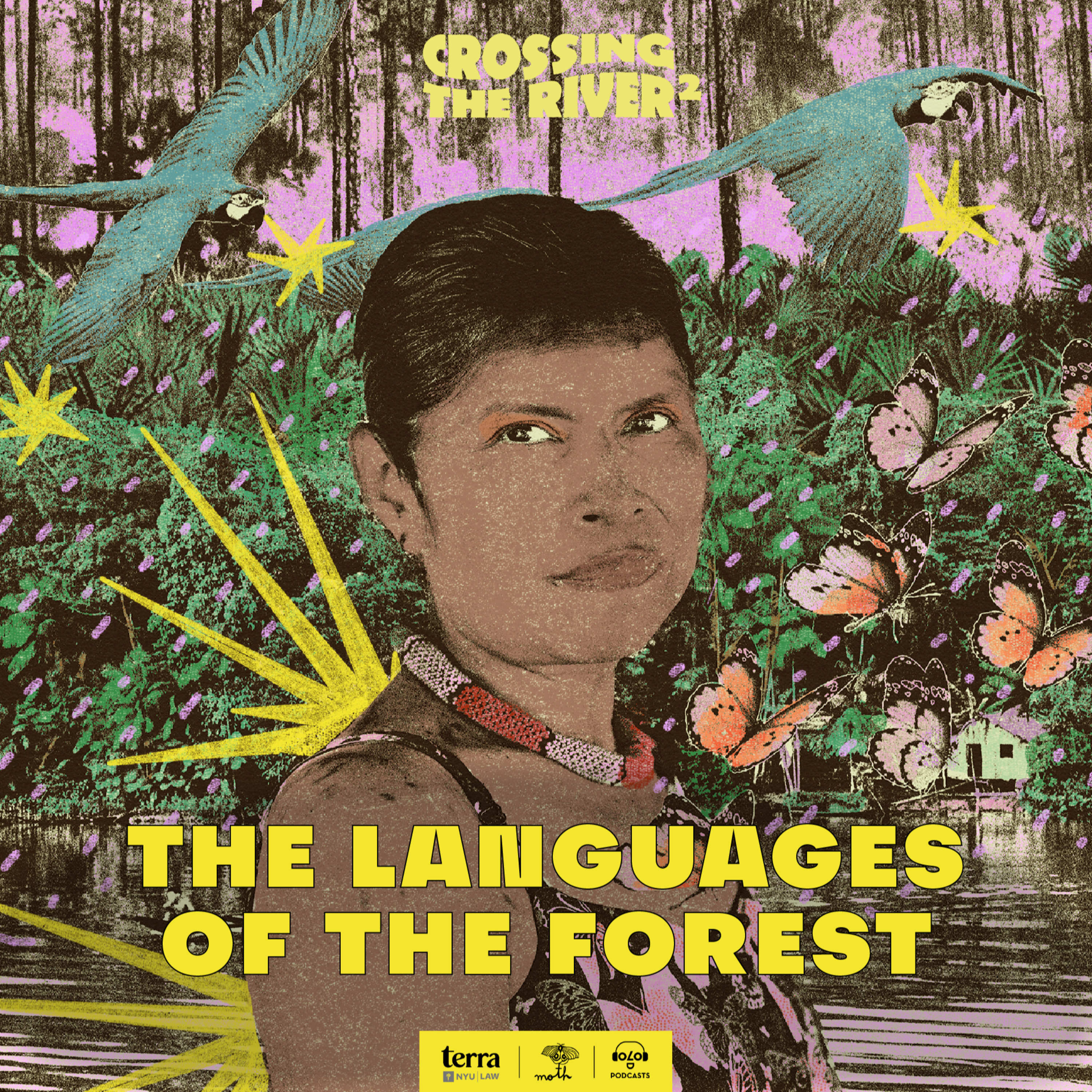
Noemí Gualinga (Kichwa Indigenous People of Sarayaku, Ecuador) is an Indigenous leader and a member of the Amazonian Women Defenders of the Rainforest Collective, an organization dedicated to protecting the rights of Indigenous women and their territories.
Noemí has crossed many rivers — both literal and metaphorical — learning to adapt to life in the city, to other languages, and to unfamiliar rules. She has adapted, but never forgotten who she is or where she comes from. This is the lesson she has passed on to her children.
For Noemí, preserving and transmitting knowledge — and sustaining the deep rela...
Grandmother Helen Lindmark: Deep Listening [ENG]
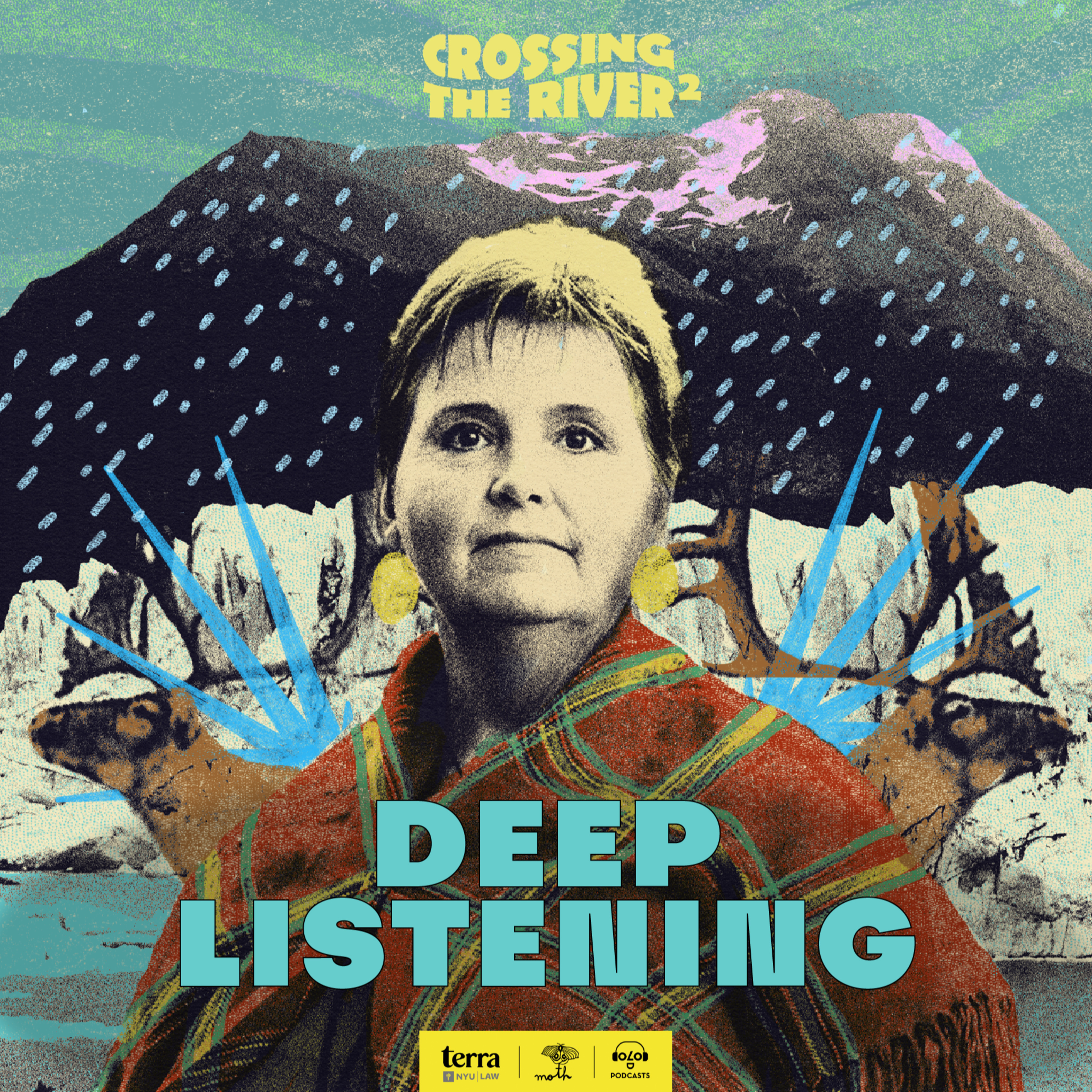
In this episode, Grandmother Helen Lindmark (Sámi Indigenous People, Sápmi) shares her deep connection to the land and the Sámi way of life. The Sámi people inhabit Sápmi—a vast, remote region that spans Sweden, Finland, Norway, and Russia’s Kola Peninsula—located within the Arctic Circle and rich in minerals like copper and gold. Because of this, their lands and communities have long been threatened by extractive industries and colonial forces that have sought to suppress their language and cultural traditions. Today, the Sámi are the only Indigenous people recognized within the European Uni...
Christine Kandie: Reclaiming Unheard Voices [ENG]
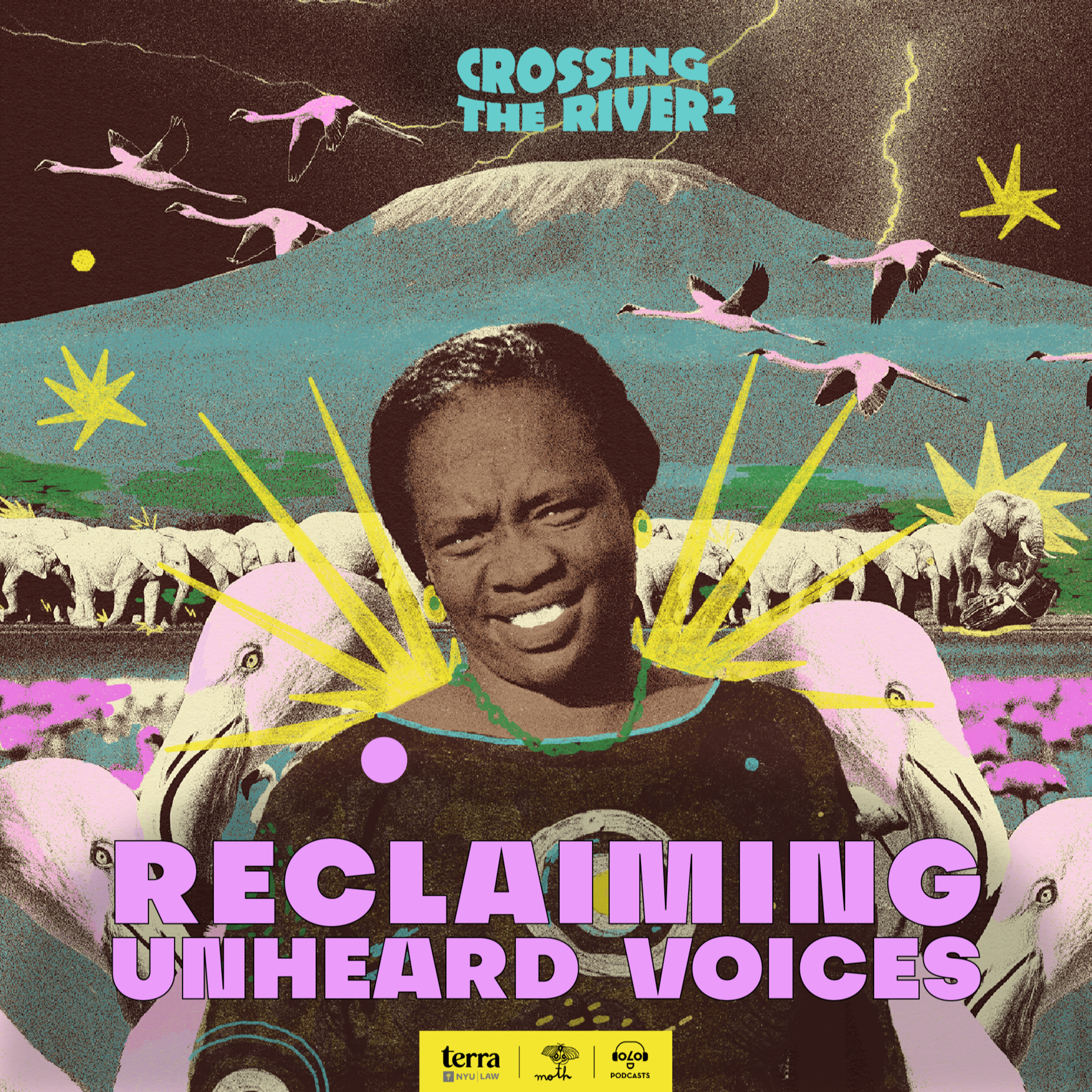
In this episode, Christine Kandie (Endorois Indigenous People, Kenia) shares a deeply personal story of dispossession, resistance, and healing. Following the forced eviction of her people from their ancestral land in 1973, Christine grew up hearing stories of a lake that was like a womb for her community—vital, spiritual, and irreplaceable.
In this episode, we follow her journey from a childhood in exile to becoming the founder of the Endorois Indigenous Women Empowerment Network. Along the way, she has challenged layers of invisibility to demand justice, reparations, and recognition. This is a story about the power of me...
Patricia Tobón Yagarí: Bridging Worlds [ENG]
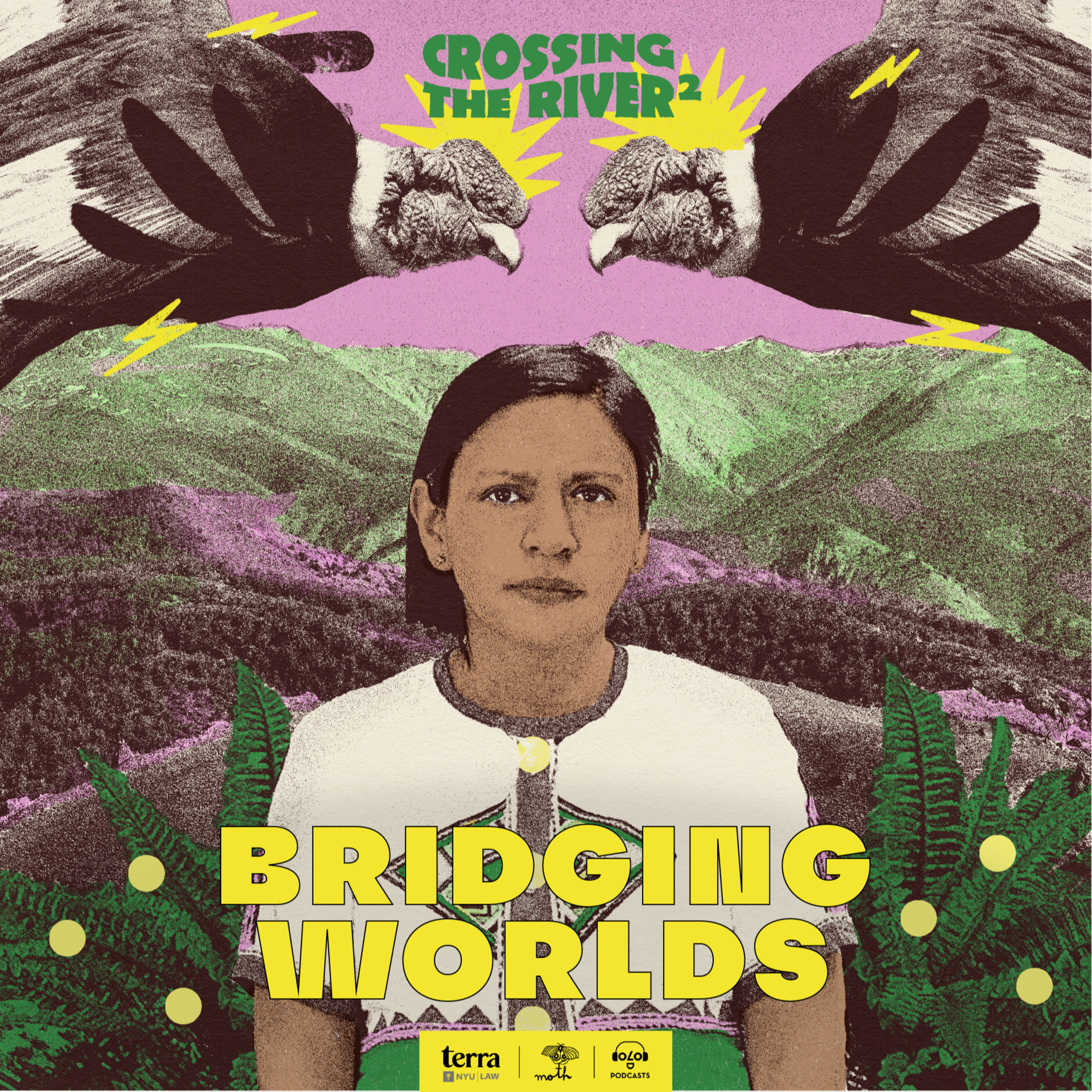
Patricia Tobón Yagarí (Emberá-Chamí Indigenous People, Colombia) is an Indigenous attorney who bridges worlds: between Indigenous and non-Indigenous cosmologies, communities and the State, Western law and the stories of the Colombian armed conflict, and the processes of truth, healing, and reparation. Her home was her first school, and her career demonstrates that being born between two worlds—and deeply understanding both—is a powerful tool for building bridges between diverse actors.
Mphatheleni Makaulule: Words That Weave The Land [ENG]
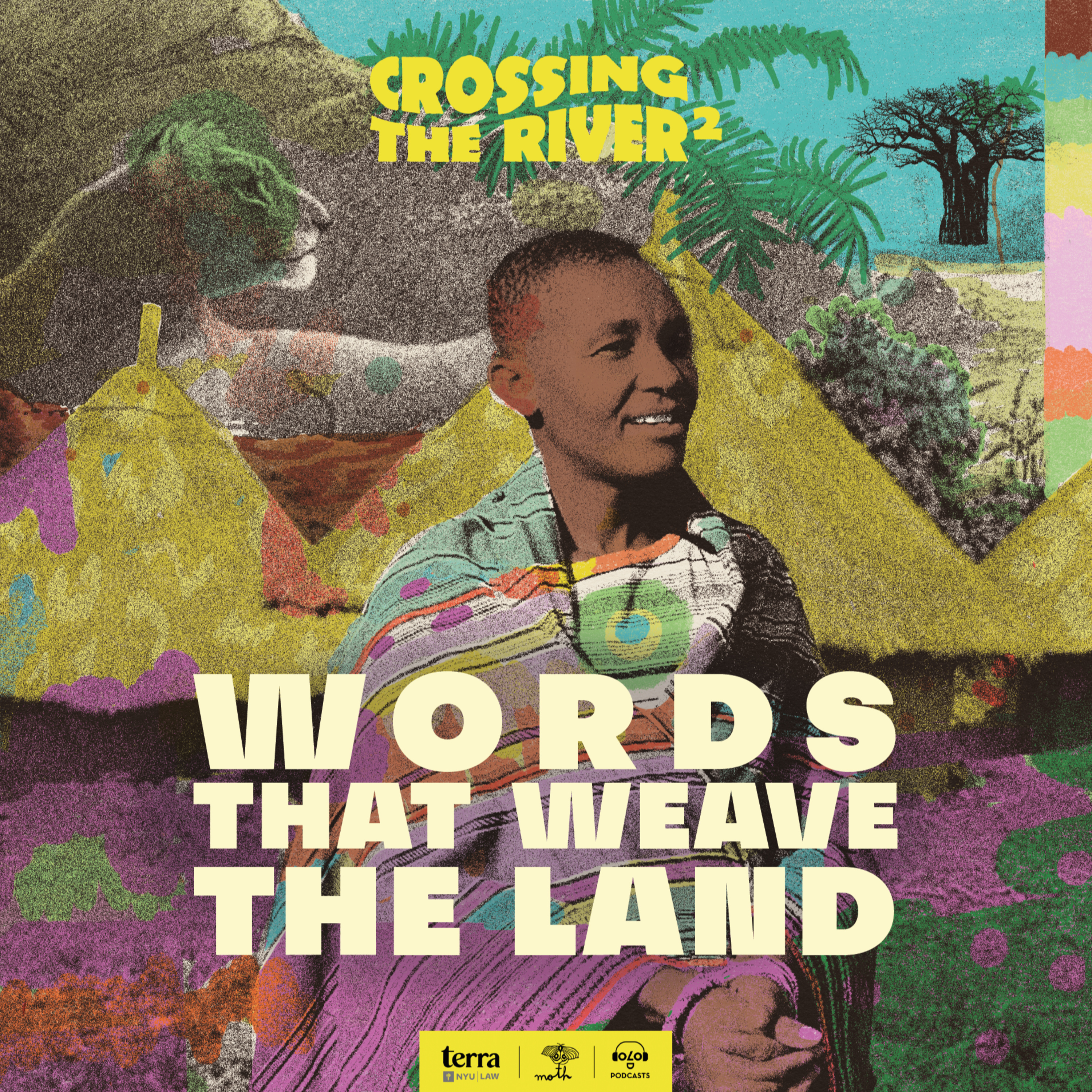
In the first episode of the second season, Mphatheleni Makaulule (Venda Indigenous People, South Africa) shares her experience as a keeper of Indigenous knowledge systems. Mphatheleni argues that defending her territory means protecting her language—the words she and her people use to foster relationships with their land. As part of her work, she has documented and preserved the knowledge of the elders and the wisdom embedded in their language.
Manifesto - Season 2 [ENG]
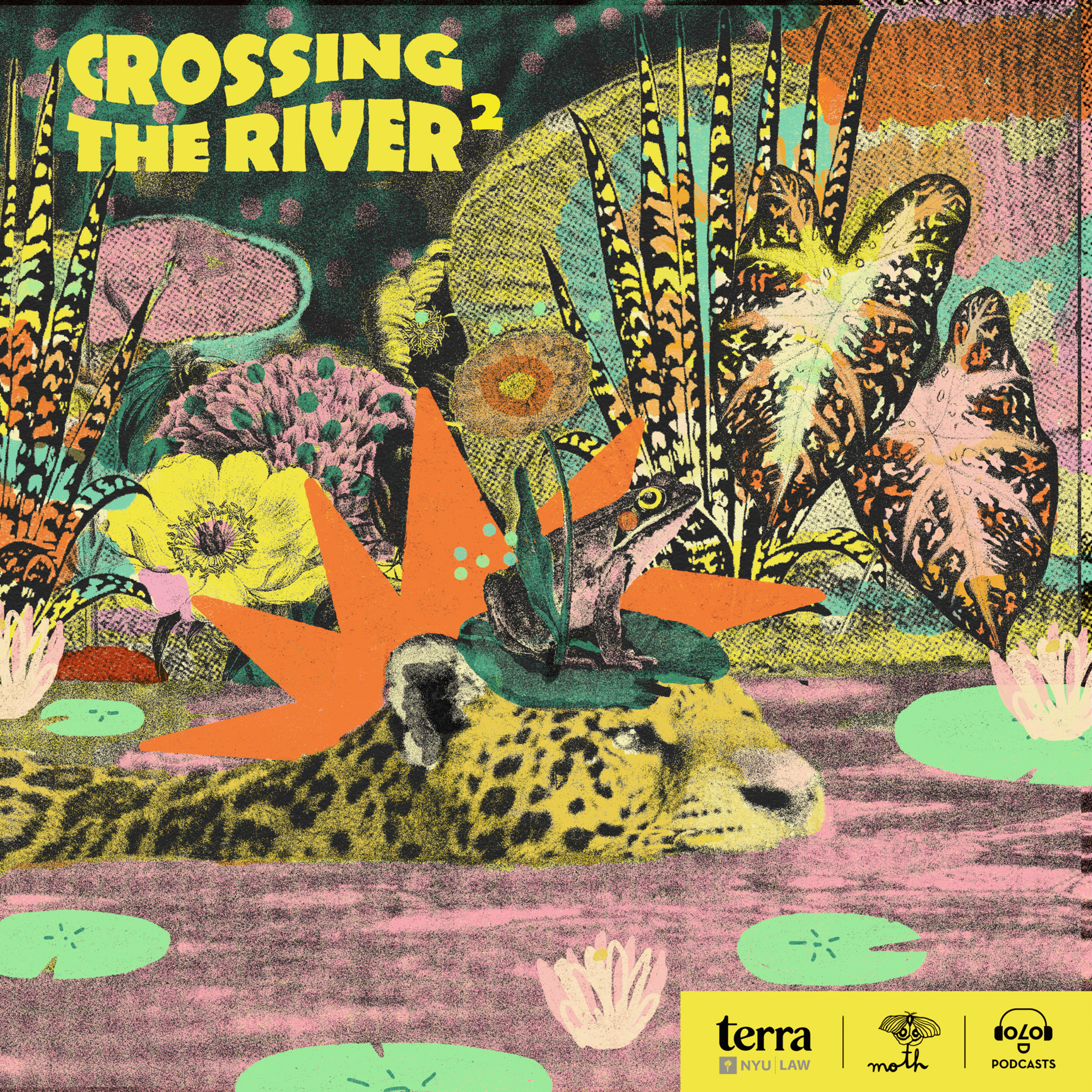
Crossing the River is a podcast in which we hear from Indigenous leaders who defend life on Earth every day, in their own words, because they are the protagonists of their own stories. To make the collective decisions which will define our present and our future, and to re-examine the stories we tell about our past, we must listen to their voices.
This podcast amplifies Indigenous peoples’ voices; it does not explain or interrupt them. Here, you will hear directly from Indigenous leaders, because deep listening requires paying close attention to the way they pause and breathe an...
Davi Kopenawa: Contra la sociedad de los cachivaches [ESP]
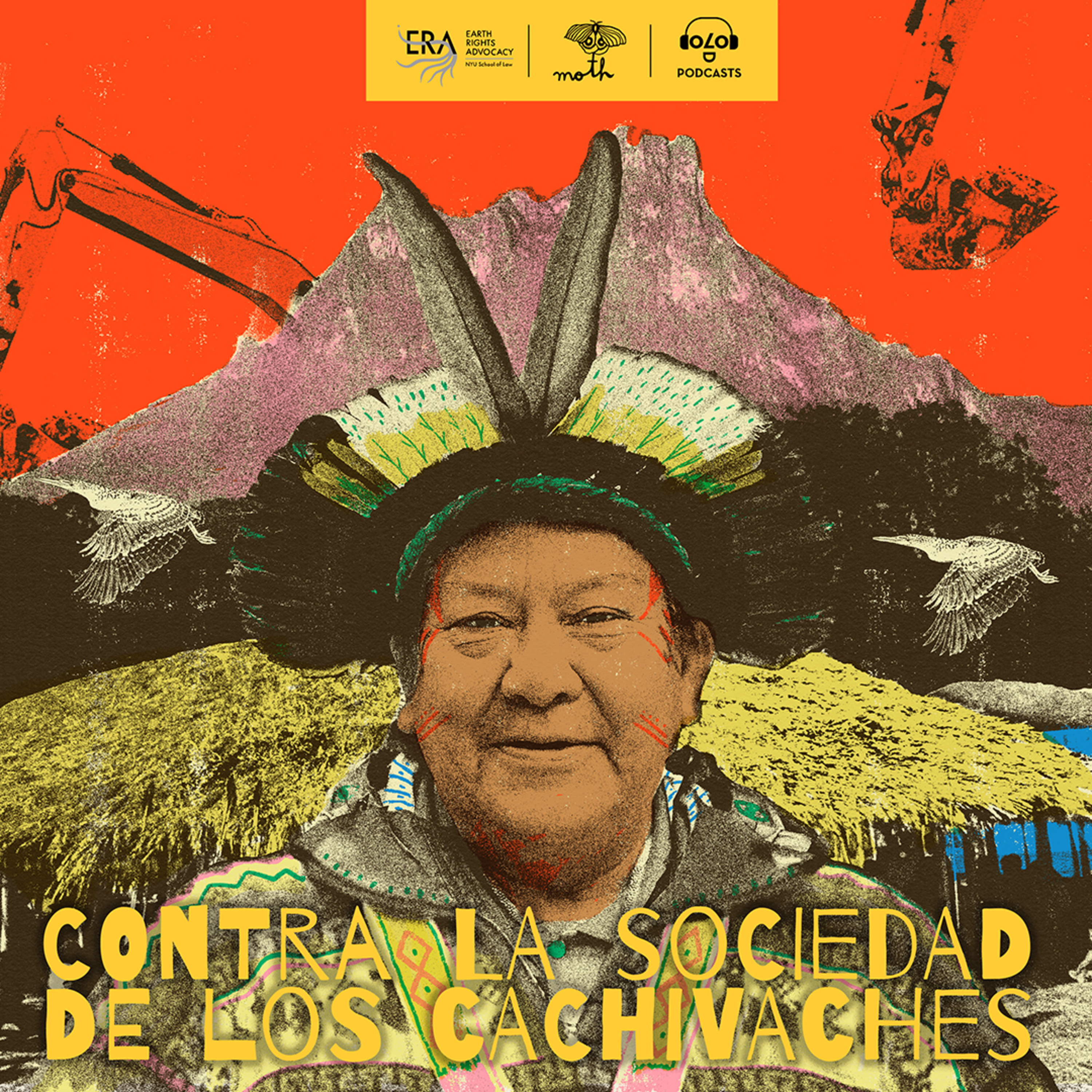
En el episodio final de esta temporada de Cruzar el Río, conversamos con Davi Kopenawa Yanomami, chamán, líder y etnógrafo del pueblo indígena Yanomami de Brasil. Davi nos invita a reflexionar sobre la obsesión materialista de la sociedad moderna, la que él llama como el «pueblo de las mercancías», que también se puede traducir como el pueblo que se concentró en acumular cachivaches. Este pueblo está afanada por explotar y apropiarse de la vida humana y más-que-humana. Desde su conocimiento ancestral, Davi comparte cómo el pueblo Yanomami mantiene un diálogo constan...
Ehuana Yanomami: Cuando las mujeres se juntan [ESP]
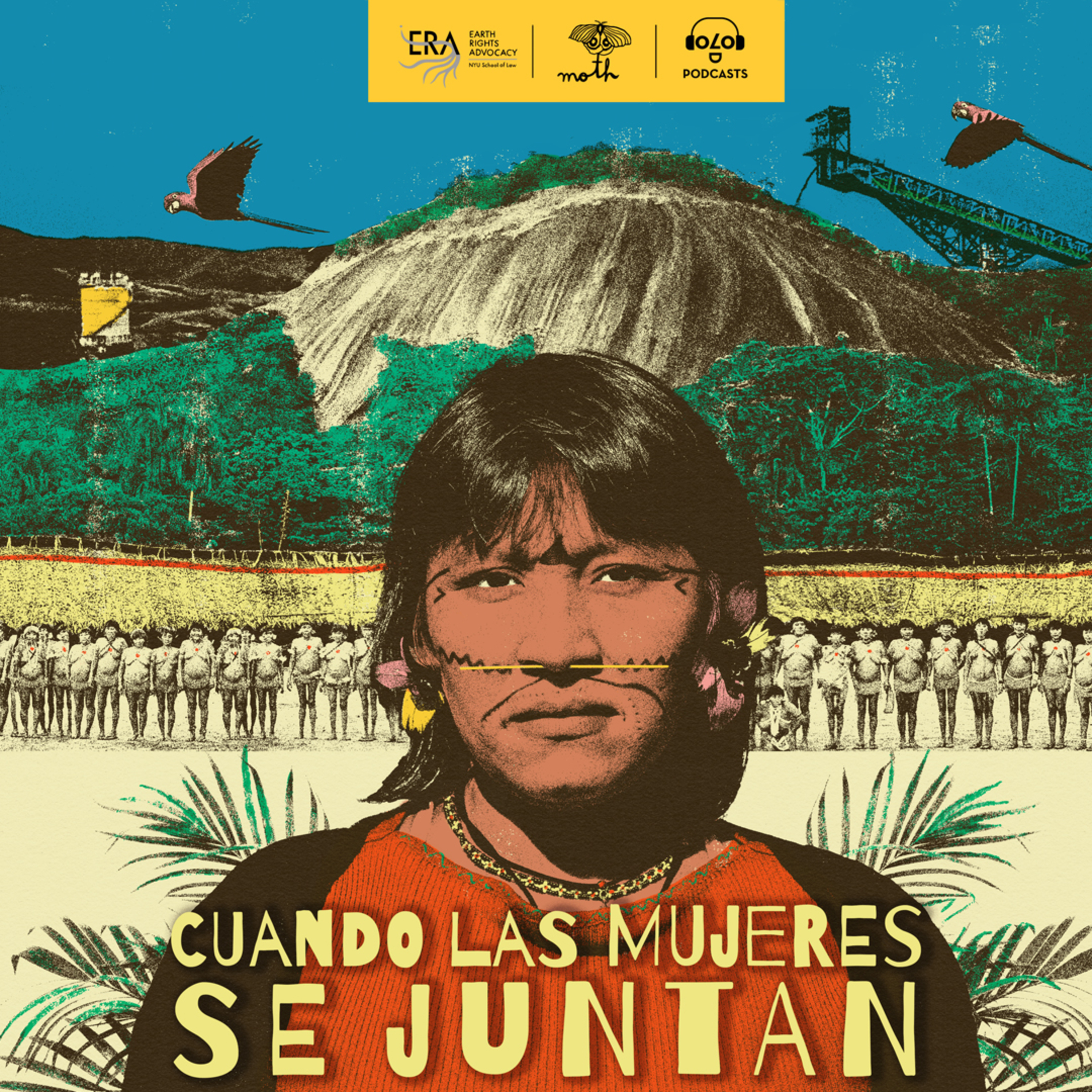
En este episodio de Cruzar el Río, conversamos con Ehuana Yaira Yanomami, artista, escritora e investigadora del pueblo indígena Yanomami de Brasil. Ehuana reflexiona sobre el papel crucial de las mujeres en la resistencia contra la minería ilegal de oro y la violencia patriarcal asociada a esta práctica. En su lengua materna, una de las seis de la familia lingüística yanomami, nos guía a través de las luchas y transformaciones que han redefinido la movilización indígena, resaltando la fuerza colectiva de las mujeres y la defensa del territorio en la Amazonía.<
Luiz Eloy Terena: Recuperar las tierras indígenas [ESP]
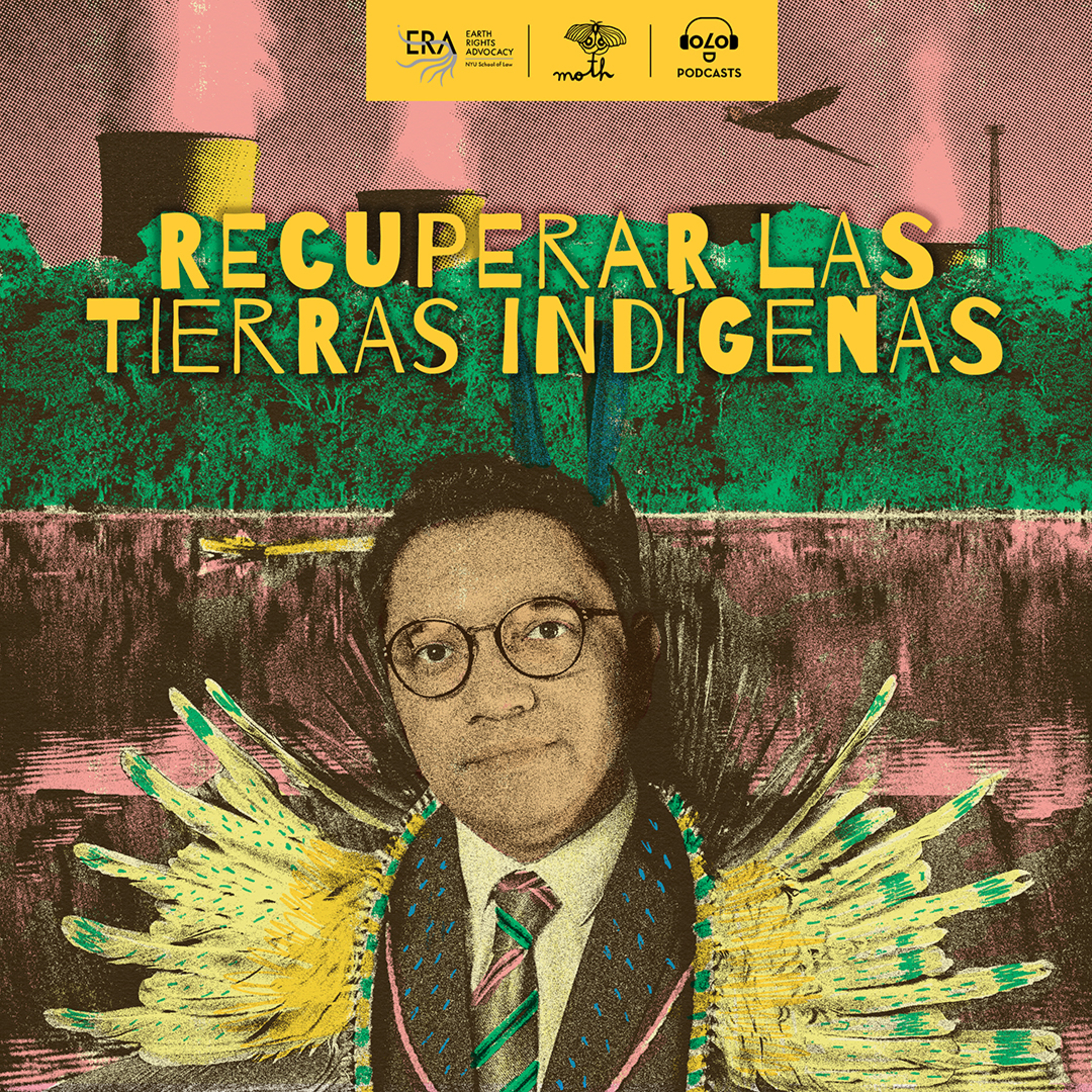
En este episodio, Luiz Eloy Terena, del Pueblo Indígena Terena de Brasil, narra la movilización en contra del Marco Temporal, el caso más importante de la historia relacionado a los derechos territoriales de los pueblos indígenas en Brasil. También habla de su trabajo como abogado indígena y de su rol como traductor para ayudar a tender puentes entre los pueblos indígenas y el resto de la sociedad.
José Gualinga: Nuestra fuerza viene de la selva viviente [ESP]
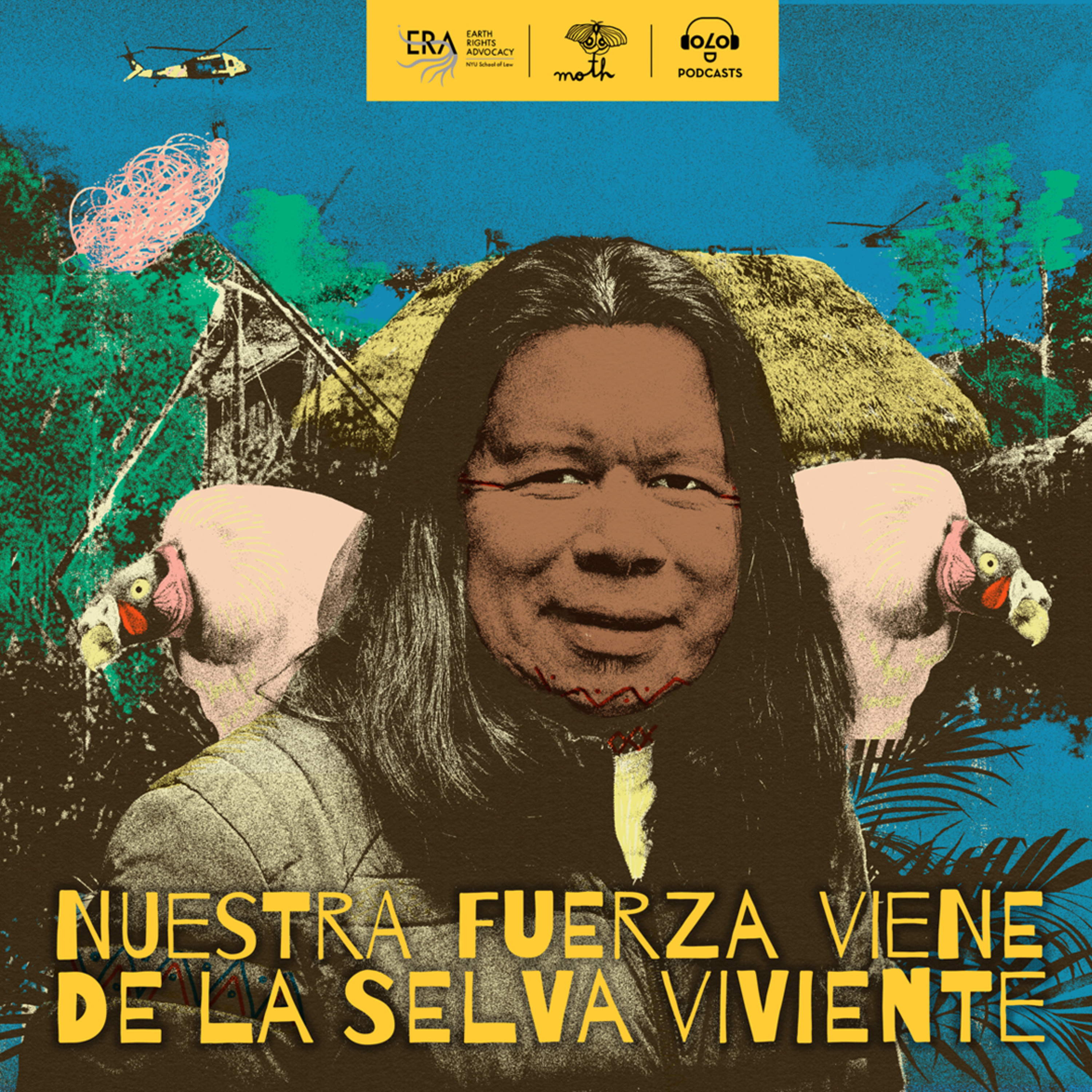
En este episodio, José Gualinga, líder del pueblo indígena Sarayaku de Ecuador, presenta la iniciativa Kawsak Sacha, o Selva Viviente, y explica sus dos significados fundamentales. Por un lado, destaca la profunda conexión espiritual y material entre los seres humanos y su territorio. Por otro, resalta el propósito esencial de la lucha del pueblo Sarayaku: lograr que su territorio y todos los seres que lo habitan, sean reconocidos, resguardados y protegidos por el derecho.
Joan Carling: Desenmascarar al colonialismo verde [ESP]
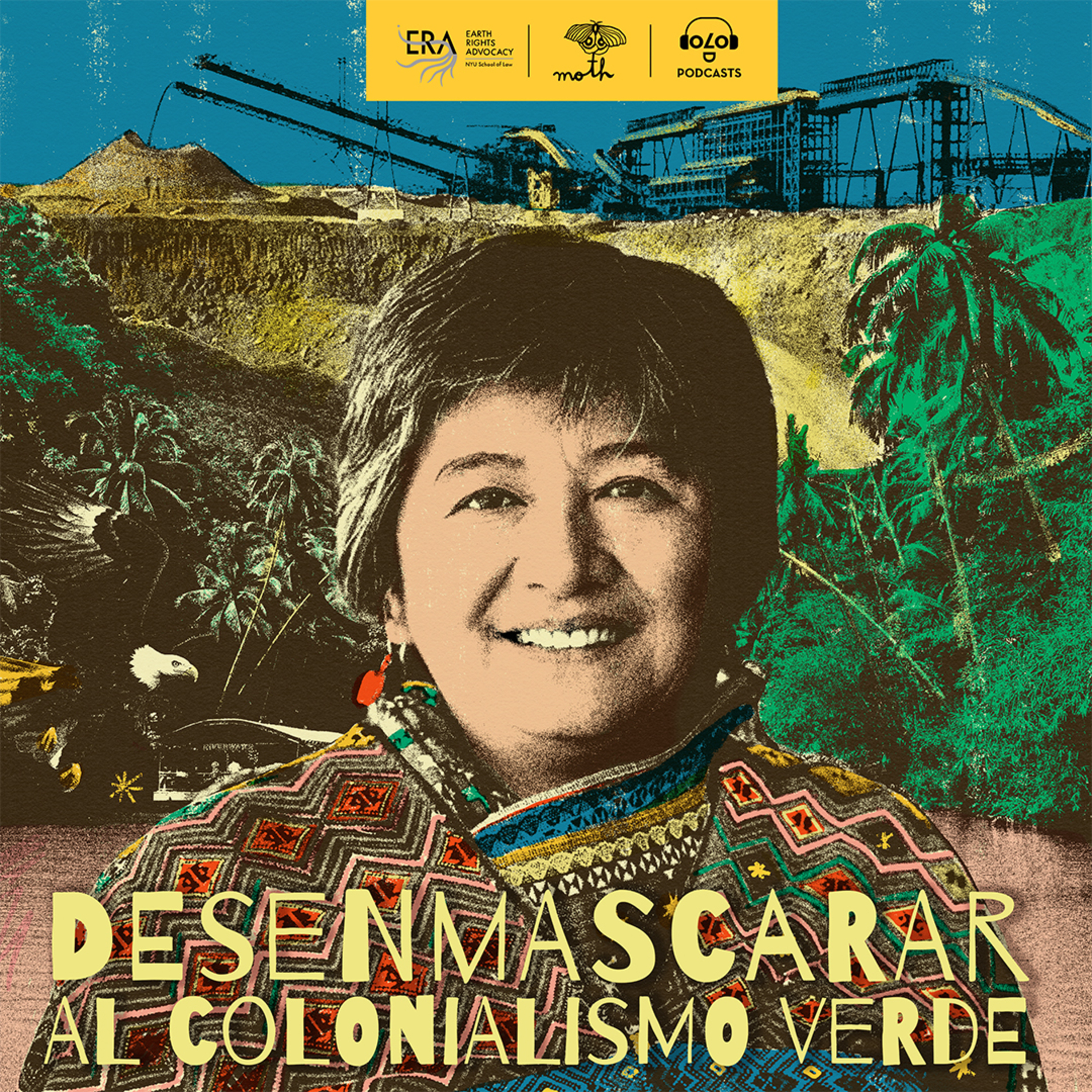
Joan Carling (pueblo indígena Kankanaey, Filipinas) plantea una pregunta crítica: ¿cómo respondemos al sistema global que ve la sostenibilidad —y el futuro de nuestro planeta— como simplemente otra oportunidad de lucro? El cuarto episodio de Cruzar el río responde a la expansión del colonialismo verde y a la crisis climática enfatizando el papel crucial de los pueblos indígenas en los procesos de toma de decisiones que afectan sus vidas y territorios.
Ana Manuela Ochoa: La paz no es solo entre humanos [ESP]
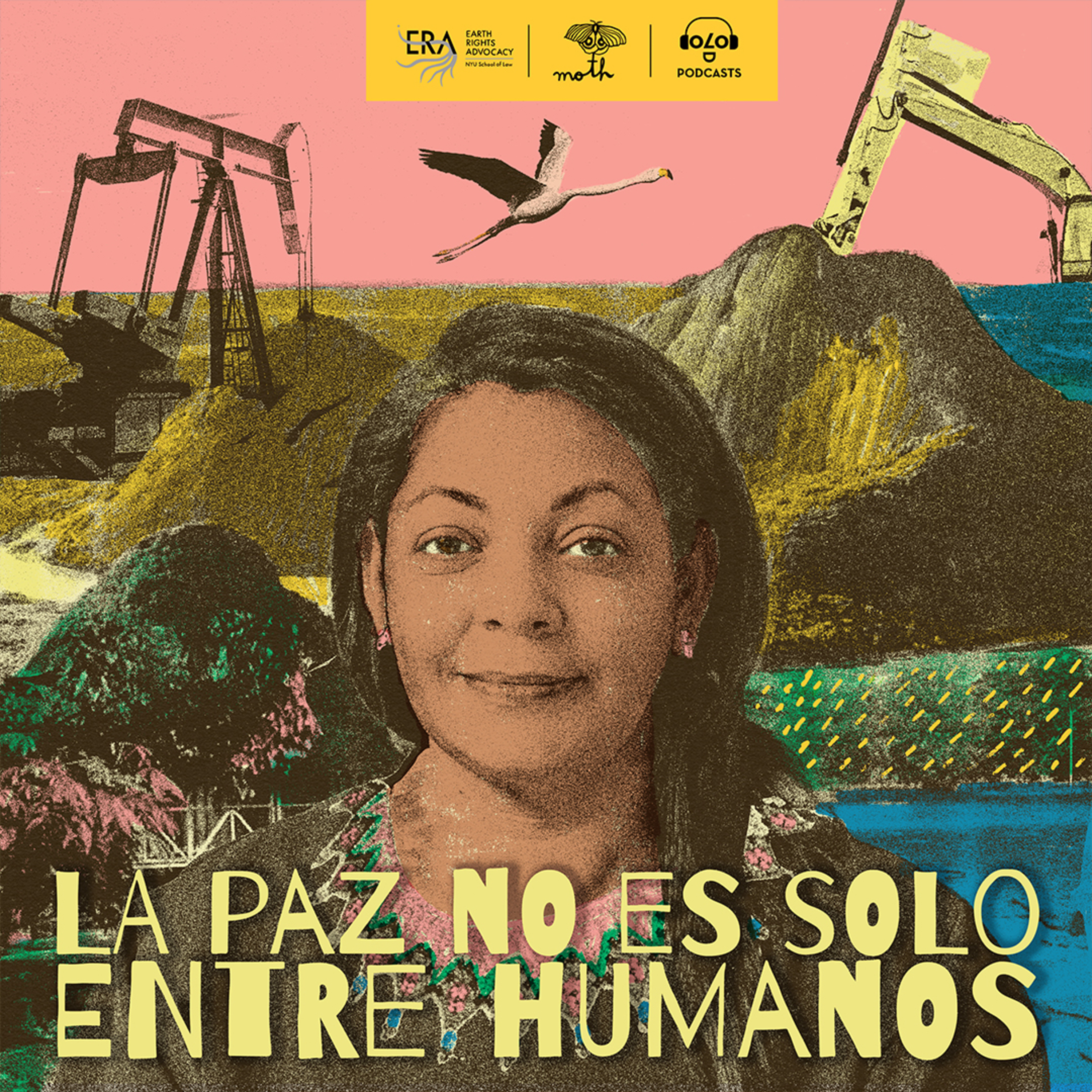
Ana Manuela Ochoa es abogada indígena del pueblo Kankuamo, en Colombia. Es, además, la primera magistrada indígena de la Jurisdicción Especial para la Paz (JEP), el tribunal de justicia creado por el acuerdo de paz entre la guerrilla de las FARC y el Estado colombiano. Ana Manuela, al igual que su pueblo, ha sido víctima de la guerrilla; sin embargo, lucha no solo por alcanzar la paz y la justicia para las personas, sino también para los territorios y la naturaleza, bajo la convicción de que los territorios sienten y sufren tanto como lo...
Maurício Ye'kuana: ¿A esto llaman primer mundo? [ESP]
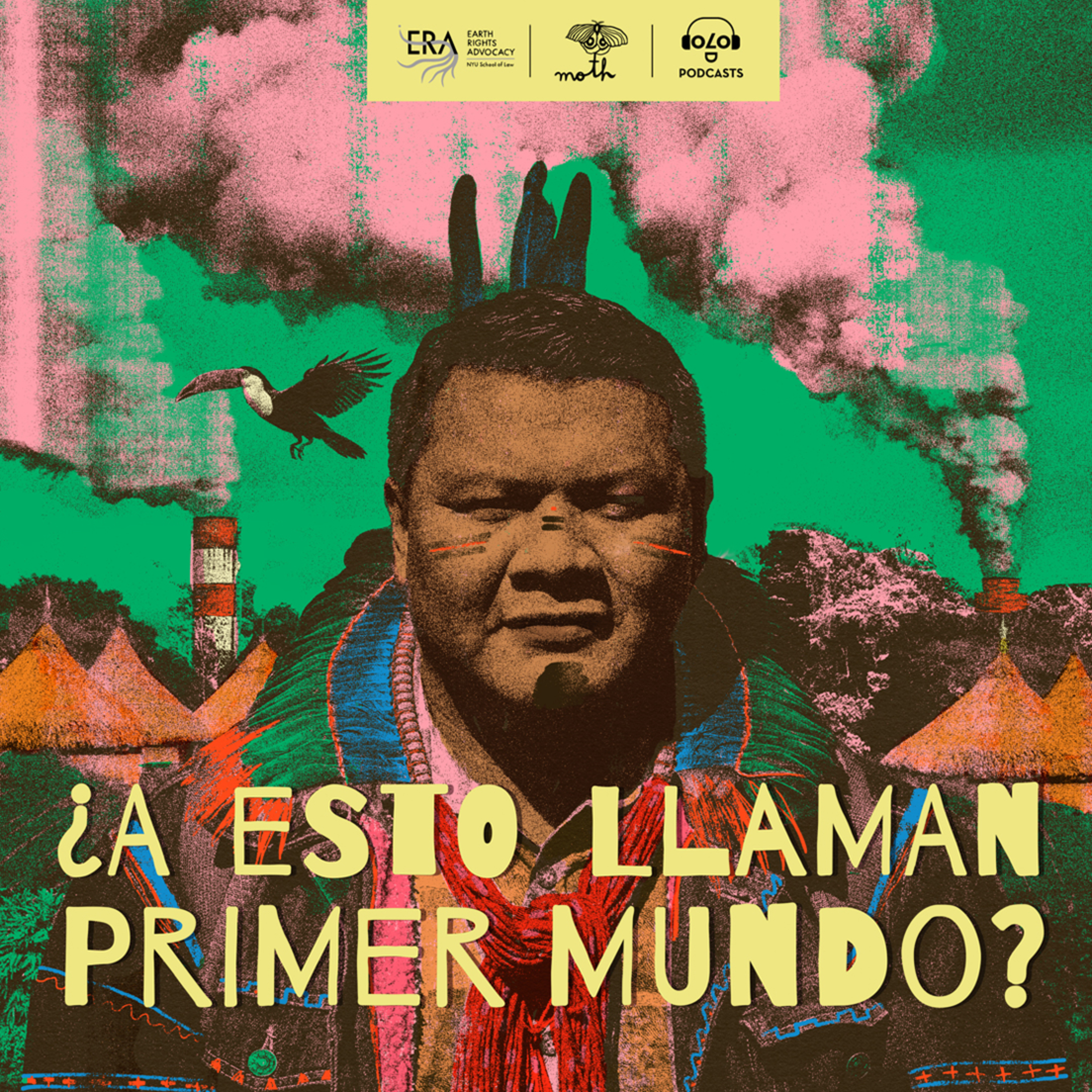
Mauricio Ye’kuana (Pueblo Indígena Ye’kuana, Brasil) habla sobre la lucha del Pueblo Indígena Yanomami para oponerse a la minería ilegal de oro en la Amazonía brasileña, así como en la falta de respuesta del gobierno brasileño ante esta crisis. El segundo episodio de Cruzar el río cuestiona conceptos centrales del llamado Primer Mundo –como el progreso, el consumo y la extracción– mientras Mauricio habla sobre las acciones que los pueblos indígenas de la Amazonía han emprendido para defender sus vidas y territorios.
Juma Xipaia: La lucha es desde adentro [ESP]
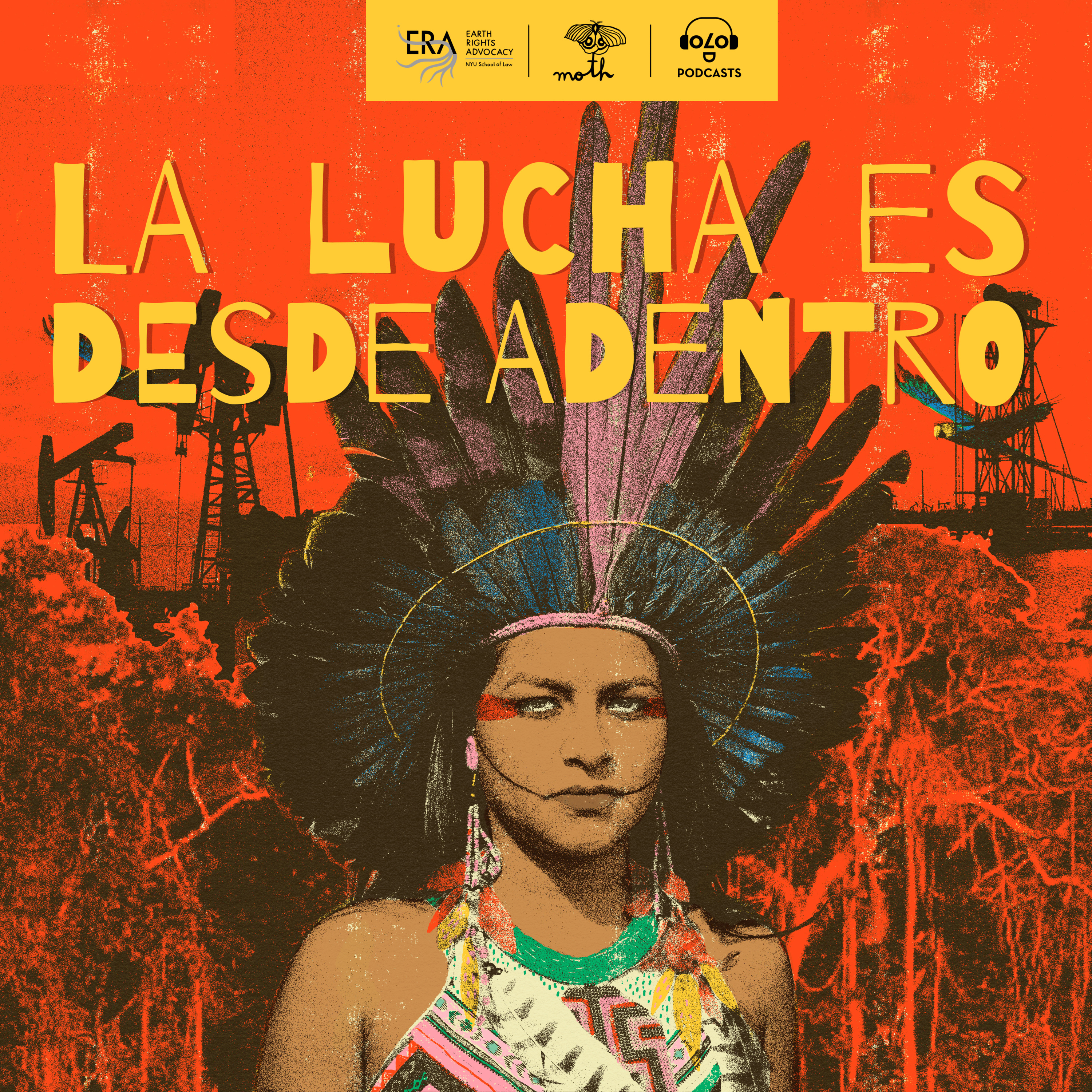
En este episodio, Juma Xipaia (Pueblo Indígena Xipaia, Brasil) comparte sus experiencias como mujer y como lideresa indígena, al tiempo que comenta sobre las transformaciones institucionales que han tenido lugar en Brasil desde la elección del presidente Lula da Silva. Su lucha viene desde dentro: porque ahora forma parte del gobierno, y esta decisión le ha exigido hacer muchos sacrificios.
Manifiesto [Español]

En este podcast conocerás a líderes y lideresas indígenas que viven en primera línea de la crisis climática mundial. Aquí comparten sus experiencias vitales, conocimientos y consejos urgentes. Son ellos y ellas quienes están liderando el camino hacia un futuro posible. Es hora de escucharles, es hora de cruzar el río.
Cruzar el río es un podcast de More Than Human Life (MOTH), con sede en el Centro de Derechos Humanos y Justicia Global de la Facultad de Derecho de la Universidad de Nueva York y 070 Podcasts.
Davi Kopenawa: Against The Society Of Junk [ENG]

Davi Kopenawa Yanomami (Yanomami Indigenous People, Brazil) is a shaman, a leader, and a scientist. Davi has crossed multiple rivers many times to question what he calls the “people of the merchandise” and their desire to exploit and possess human and more-than-human life. Davi, in this episode, delves into his ancestral knowledge to present his critique of a society obsessed with material objects, with trinkets. At the same time, Davi shares how the Yanomami people talk with nature, the being that does not lie.
Ana Manuela Ochoa: Peace Is Not Just Between Humans [ENG]
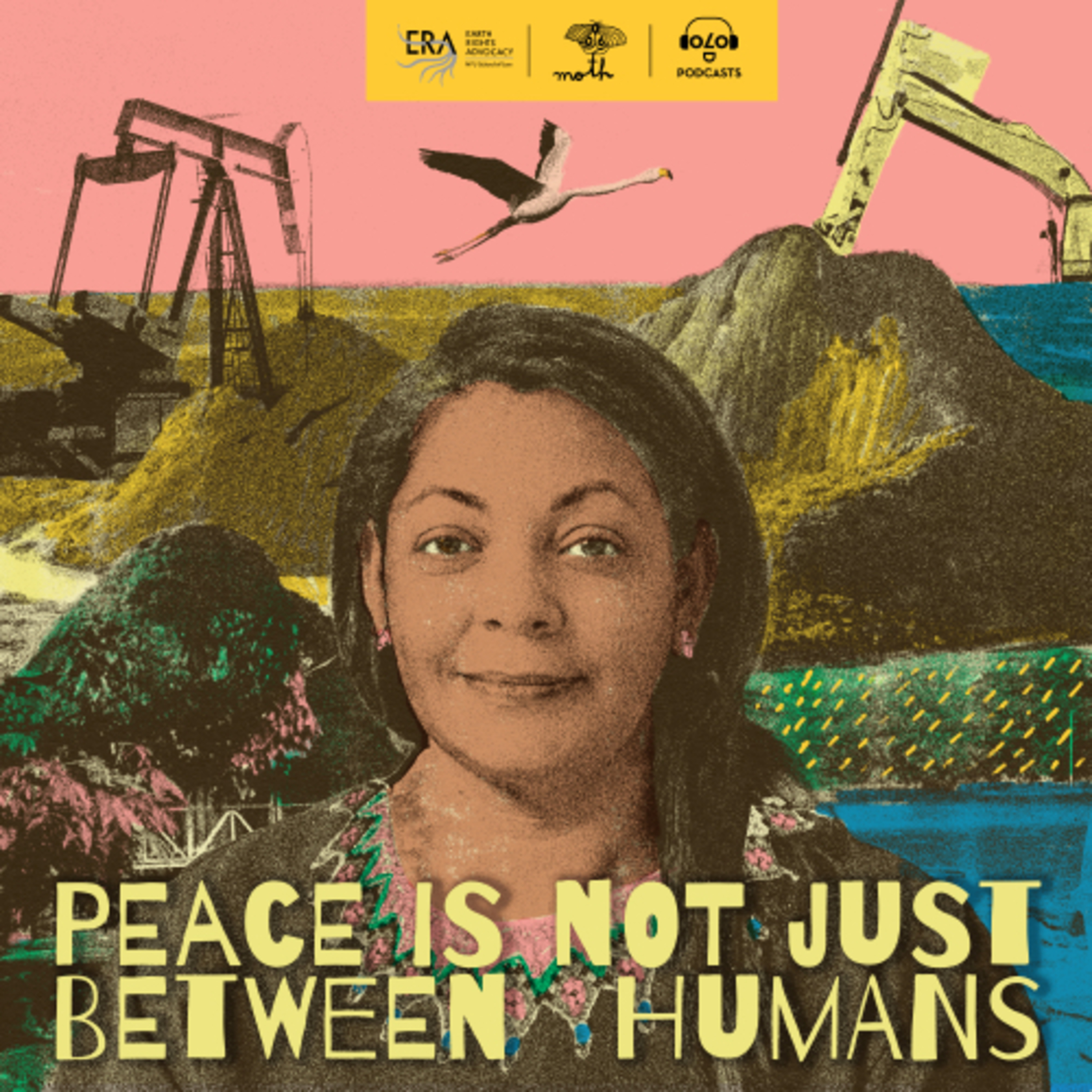
Ana Manuela Ochoa (Kankuamo Indigenous People, Colombia) is the first Indigenous Justice at the Special Jurisdiction for Peace (JEP, for its acronym in Spanish). As part of her work, Ochoa has been arguing for the recognition of the territories as victims of the Colombian armed conflict. In her own words, human and more-than-human suffering should be recognized and repaired as part of the reconciliation process happening in the country.
Luiz Eloy Terena: Claiming Back Indigenous Lands [ENG]

In this episode, Luiz Eloy Terena (Terena Indigenous People, Brazil), explains the legal case of the Marco Temporal in Brazil, and the strategies of Indigenous organizations to overturn the unconstitutional initiative. Terena also explains his role as a lawyer and cultural translator for the Indigenous peoples and their organizations in Brazil.
Ehuana Yanomami: When Women Come Together [ENG]

Ehuana Yaira Yanomami (Yanomami Indigenous People, Brazil) is an artist, writer, and researcher dedicated to amplifying the voices of Yanomami women. In this episode, Ehuana delves into the ways in which women have reshaped Indigenous mobilization against illegal gold mining and the patriarchal violence accompanying it. She speaks in her mother tongue, one of the six languages within the Yanomami language family.
José Gualinga: Our Strength Comes From The Living Forest [ENG]

José Gualinga (Kichwa Indigenous People of Sarayaku, Ecuador) introduces the concept of Kawsak Sacha (Living Forest) and describes its dual meaning: the profound connection between humans and their territory, and the core mission of the Sarayaku struggle. For the Sarayaku People, their territory and the more-than-human world must be protected and should be granted legal rights.
Joan Carling: Unmasking Green Colonialism [ENG]

Joan Carling (Kankanaey Indigenous People, Philippines) poses a critical question: how do we respond to the global system that sees sustainability—and our planet's future—as merely another profit-making venture? The third episode of Crossing the River responds to the expansion of green colonialism and the climate crisis by emphasizing the crucial role of Indigenous peoples in the decision-making processes that affect their lives and territories.
Maurício Ye'kuana: Is This The First World? [ENG]

Maurício Ye’kuana (Ye’kuana Indigenous People, Brazil), delves into the struggle of the Yanomami Indigenous People to oppose illegal gold mining in the Brazilian Amazon as well as the Brazilian government’s failure to respond meaningfully to this ongoing crisis. In the second installment of Crossing The River, concepts at the heart of the so-called First World – like progress, consumption, and extraction – are called into question as Maurício discusses the steps Indigenous peoples in the Amazon have taken to defend their lives and territories.
Juma Xipaia: The Struggle From Within [ENG]

In this episode, Juma Xipaia (Xipaia Indigenous People, Brazil) shares her experiences as a woman and as an Indigenous leader while also commenting on the institutional transformations that have taken place in Brazil since the election of President Lula da Silva.
Manifesto [ENG]

Crossing the River is a podcast in which we hear from Indigenous leaders that defend life on earth every day: in their own words, because they are the protagonists of their stories. Indigenous leaders are the voices that the world must listen to in order to make the collective decisions that define our present and future. Indigenous leaders have crossed the river from shore to shore many times and used different strategies to talk with Western society, but the West continues to do it only with violence, to colonize, extract, and destroy. This is an exercise to change that.